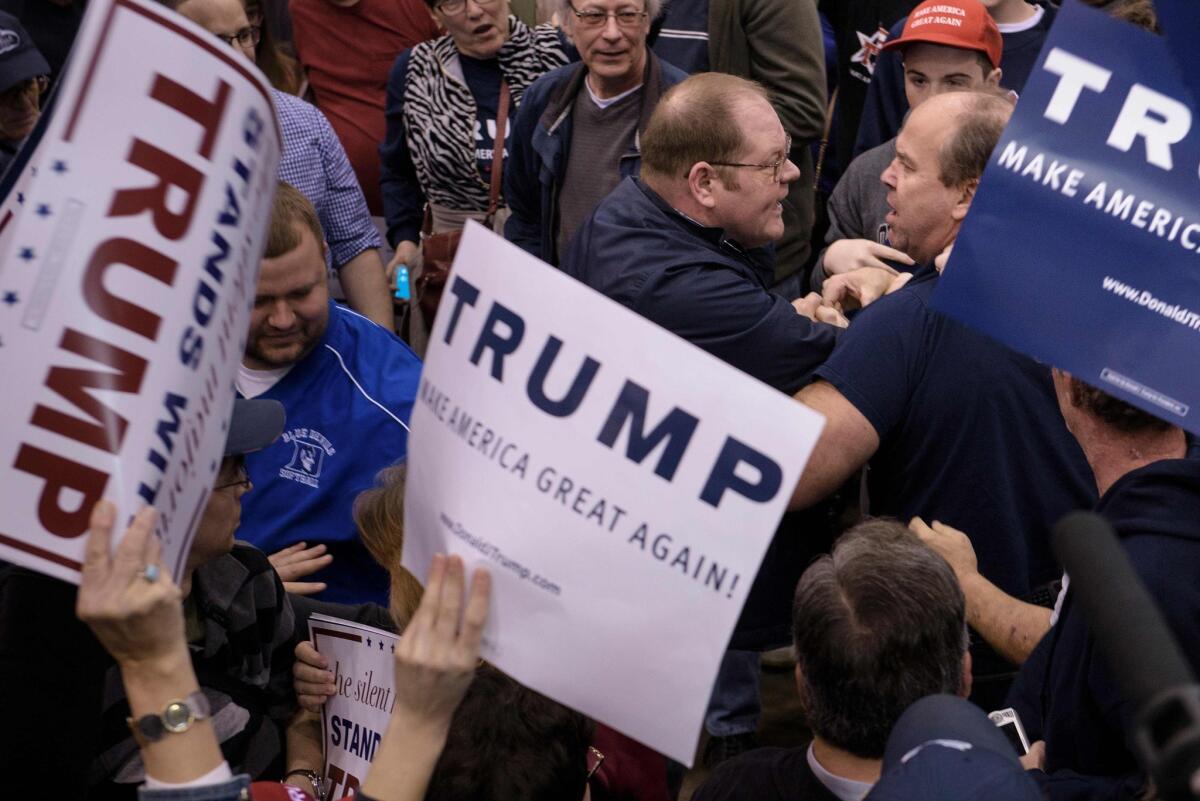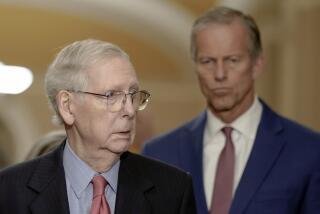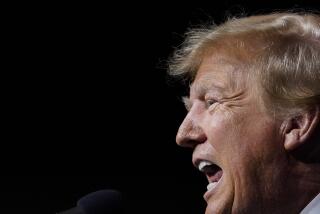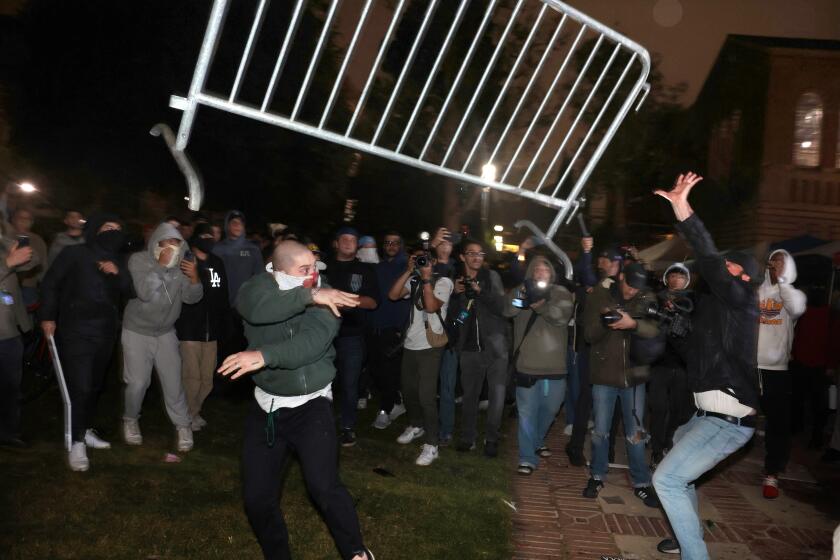Editorial: It’s time for Republican voters to reject Trump and his reckless rhetoric

Attendees clash during a Trump rally at the International Exposition Center in Cleveland, Ohio on March 12.
There are plenty of reasons for voters to fear Donald Trump, including his utter lack of government experience, his hair-trigger temperament, his bigoted statements about Muslims and Mexicans and his vacuous promise to “make America great again.” But as Republicans in five states head to the polls Tuesday, they now must seriously consider something else: whether they really want as their standard bearer a candidate whose reckless rhetoric encourages and condones violence.
This, after all, is a man who said of a protester that he’d like to punch him in the face, and who longed for the “old days” when hecklers were “carried out on a stretcher.” Not only that; after a supporter was charged with sucker-punching a demonstrator at a rally in Fayetteville, N.C., Trump said he would “look into” defraying the man’s legal expenses — a comment that some of his excitable followers might easily see as an insurance policy if they too chose to rough up a protester.
Trump insists that he doesn’t condone violence, and he has tried (unpersuasively) to portray himself and his campaign as victims of violence and sabotage by a rival candidate. Yet even in making the latter accusation, he flirted with incitement, tweeting: “Bernie Sanders is lying when he says his disrupters aren’t told to go to my events. Be careful Bernie, or my supporters will go to yours!”
It’s true that some of Trump’s opponents want not only to protest at his events but to shut them down; that may have been the intention of some of those who gathered at a Trump rally at the University of Illinois in Chicago last week. (Trump’s appearance was canceled by the campaign as a security measure after scuffles between pro- and anti-Trump members of the audience.) And a protester who tried to get close to Trump at an event in Dayton, Ohio — with the intention of seizing the microphone and calling Trump a racist — rightly was stopped by the Secret Service and arrested.
Like any candidate, or any citizen, Trump has a right not to be drowned out just as his supporters have a right to hear him. But the fact that some protesters may cross the line doesn’t begin to justify Trump’s incendiary language, which — like so much else about Trump — is unique to him. A certain amount of tough talk is expected in any political campaign, but Trump consistently engages in bullying, demagogic language freighted with malice — and menace.
A certain amount of tough talk is expected in any political campaign, but Trump consistently engages in bullying, demagogic language freighted with malice -- and menace.
It’s not surprising that Democratic candidate Hillary Clinton has accused Trump of “political arson” and of “trafficking in hate and fear.” But, to their credit, Trump’s Republican opponents — who in the past treated him with unjustified delicacy and deference — have also begun to call him on his loaded language.
Ohio Gov. John Kasich accused Trump of creating a “toxic environment [that] has allowed his supporters and those who sometimes seek confrontation to come together in violence.” Sen. Marco Rubio of Florida, while also blaming anti-Trump protesters, lamented that “you have a leading contender for president telling his audience ‘go ahead and punch someone in the face and I’ll pay your legal bills.’ That’s not an excusable attitude. That is wrong if our kids did it. It is disastrous if our president did it.”
Trump has defended himself by arguing that he is channeling the anger of an electorate outraged over economic stagnation, inequitable trade agreements and poor care for veterans. “They’re not angry about something I’m saying,” he told NBC’s Meet the Press. “I’m just the messenger.” False modesty aside, that ignores the fact that Trump is the impresario of his personality-driven campaign and sets the tone for his followers. That tone has been hostile, provocative and ugly.
And by the way, Trump doesn’t only use that tone at campaign events in an effort to rouse and enflame his supporters on the hustings; that anger and hostility is also clearly reflected in the policies he says he would implement were he to be elected. When he calls for walls between neighbors or for “much worse” forms of torture than waterboarding or for killing the families of terrorists, he is offering an important glimpse into a personality that, the more we learn of it, seems extraordinarily unsuited for the presidency.
When Republicans vote Tuesday — and when candidates and party leaders try to reckon with the results — we hope that they will recognize the danger posed by a potential presidential nominee who inflames the worst instincts of supporters and opponents alike.
Follow the Opinion section on Twitter @latimesopinion and Facebook
More to Read
A cure for the common opinion
Get thought-provoking perspectives with our weekly newsletter.
You may occasionally receive promotional content from the Los Angeles Times.






